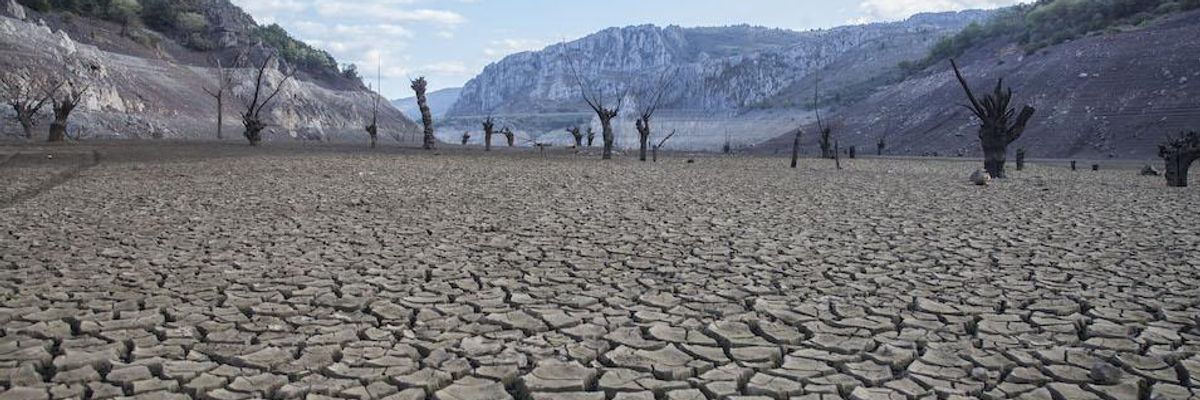A recent series of summer droughts in Europe, which brought devastating ecological, agricultural, and economic impacts, were more severe than any over the past 2,100 years, new research out Monday finds.
"Our results show that what we have experienced over the past five summers is extraordinary for central Europe, in terms of how dry it has been consecutively," dendrochronology specialist and lead author Professor Ulf Buntgen of Cambridge's Department of Geography said in a statement.
Buntgen and the team of international researchers linked the recent droughts to the climate crisis, including its impacts on the jet stream.
The findings were published Monday in the journal Nature Geoscience.
Analyzing over 27,000 measurements of carbon and oxygen isotopic ratios from European oak trees--21 living and 126 dead--the scientists got a picture of past climates, including summer droughts, spanning the years 75 BC to 2018.
Co-author Paolo Cherubini of the Federal Research Institute WSL in Birmensdorf, Switzerland, explained that "carbon values depend on the photosynthetic activity" and "oxygen values are affected by the source water."
And the "insights before medieval times," said Buntgen, "are particularly vital, because they enable us to get a more complete picture of past drought variations, which were essential for the functioning and productivity of ecosystems and societies."
The reconstruction showed an overall drying trend. But the samples showed that the droughts from 2015-2018 were "unprecedented" over the massive time span.
But the runaway climate crisis portends more worrisome parched periods to come.
"Climate change does not mean that it will get drier everywhere: some places may get wetter or colder, but extreme conditions will become more frequent, which could be devastating for agriculture, ecosystems, and societies as a whole," said Buntgen.
The U.K. Green Party shared The Guardian's reporting on the new study with a tweet declaring, "Climate change is here."
"If we don't cut carbon emissions, it will get worse," they said. "Let's fight this while it's still fixable."
